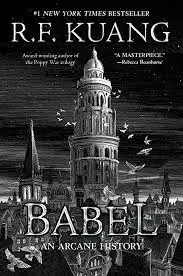I have been thinking more and more about how our personal lives impact our access to literature and information in general.
For example, I am reading a book I am rather enjoying, but it's in French with no translation in any other languages. It's also from a local small publishing company. At the moment, I am not aware if it has been published as an e-book, that would make it more available, but for what I know this one book is accessible only to people in a rough 100km radius from where I am, and has a language requirement.
In a similar way, news is highly language based, and new outlets will differ significantly in what news they are distributing depend ing on language and geographical location (have you heard about the Serbian protests in the last weeks? I wouldn't if it hadn't been for a Serbian friend - and I have very limited first hand access to news about it).
How conscious are you that you live - necessarily - in a bubble? When do you notice it most?
Related, check out this website: novelty-insights.com where you can analyse your goodreads book data to see what sort of categories you read most from - a sort of "filter" we apply to ourselves, sometimes willingly, sometimes unconsciously.

:’(